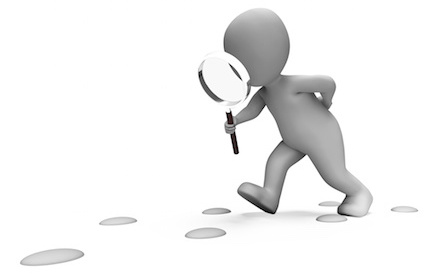A friend told me she’d read my pamphlet on “Thinking on Paper” and had immediately used it to think about a family situation. She’d concluded that she needed to talk with someone to find out more information. She wanted to know if that was “all right.” Of course, it was all right!
Thinking is an amazingly powerful tool. It is your means of integrating what you know to establish new conclusions. It is your means of turning scattered information into solid conceptual knowledge. But you cannot think in a vacuum!
If you are ignorant in an area, thinking will get you nowhere because thinking cannot generate new raw material. A thinking process can only use information that already exists in your databanks to reach those conclusions. This is why your conclusion may often be that you need to gather additional information to reach a firm conclusion. For example, my friend may have concluded that she didn’t know what had really happened, or what was really upsetting her family members.
You’ve got two main ways to collect more information: your own observation or learning from others.
Your primary means of acquiring new information is observation. What do you see and hear? What happens when, where, and in what order? Who is doing what? At the direct sensory level, such observations are inherently valid. However, when you start inferring cause and effect, intentions, and meaning, what you “observe” can be distorted by untested assumptions. I’m sure you’ve seen that sometimes people hear what they want to hear, and see what they want to see.
But you can learn to be an objective observer. If you take your first cut at understanding what you observe, then think about it, check for unwarranted assumptions, and test your conclusions against what else you know, you can broaden your knowledge and ground all your conclusions in observed fact. In other words, when you know how to think objectively, you can also make sure your observations are objective.
Your secondary means of acquiring information is to learn from others. You can learn more, faster, if other people will share their observations and conclusions with you. You still need to think about what they say, and relate their conclusions to what you know from your own experience. But learning from others saves a tremendous amount of trial and error. Civilization advances because we can build on the knowledge of those who went before.
You learn most easily from others when they lay out their conclusions in an objective form, i.e., when they show you the facts they base the idea on, giving you examples you can relate to, connecting the idea to what you already know. In such cases, it seems almost effortless to learn, because their conclusions seem obvious once presented. But you can never skip the step of integrating their conclusions with yours, even when the presentation is completely objective. Nothing is obvious until you know it. If you learn something new from someone else, your knowledge banks need some re-organizing and clarifying to fully integrate this new idea.
Moreover, it’s possible for other people to offer a slanted view of the facts. For example, by including only information that fits their narrative, they can make a plausible case for a false conclusion. When they do this intentionally, it’s called manipulation. When they do this unintentionally, it’s called bias. Regardless, it’s up to you to judge the truth or falsehood of any conclusions you are filing away in your databanks.
My friend may get a plausible story from the family members she talks to, but she’ll need to check it to make sure she gets to the truth.
And that’s why she will need to use her observation skills when she talks to her family members. Careful observation of other people in a conversation reveals a lot about their emotional state, degree of conflict, and confidence in their conclusions. When you ask them questions, do they answer, or do they act threatened? I don’t recommend you psycho-analyze the people you talk to, or jump to conclusions about their motivations. But your evaluation of the congruity between their thoughts, feelings, and actions is relevant to your validation of what they say. You will need to make the observations, and think about them.
Thinking is a powerful process. It can help you establish crucial facts. It can help you turn hunches and stray ideas into solid knowledge. It can help you see important patterns in past experiences. But the raw material for thinking is information in your own mental databanks. If you don’t have lots of information on file, you don’t have the means to think about the topic. So, often, your conclusion from thinking will be, “I need to get more information on that topic. I need to make some observations, or learn what other people claim to know about this, so I can see for myself.”









0 Comments